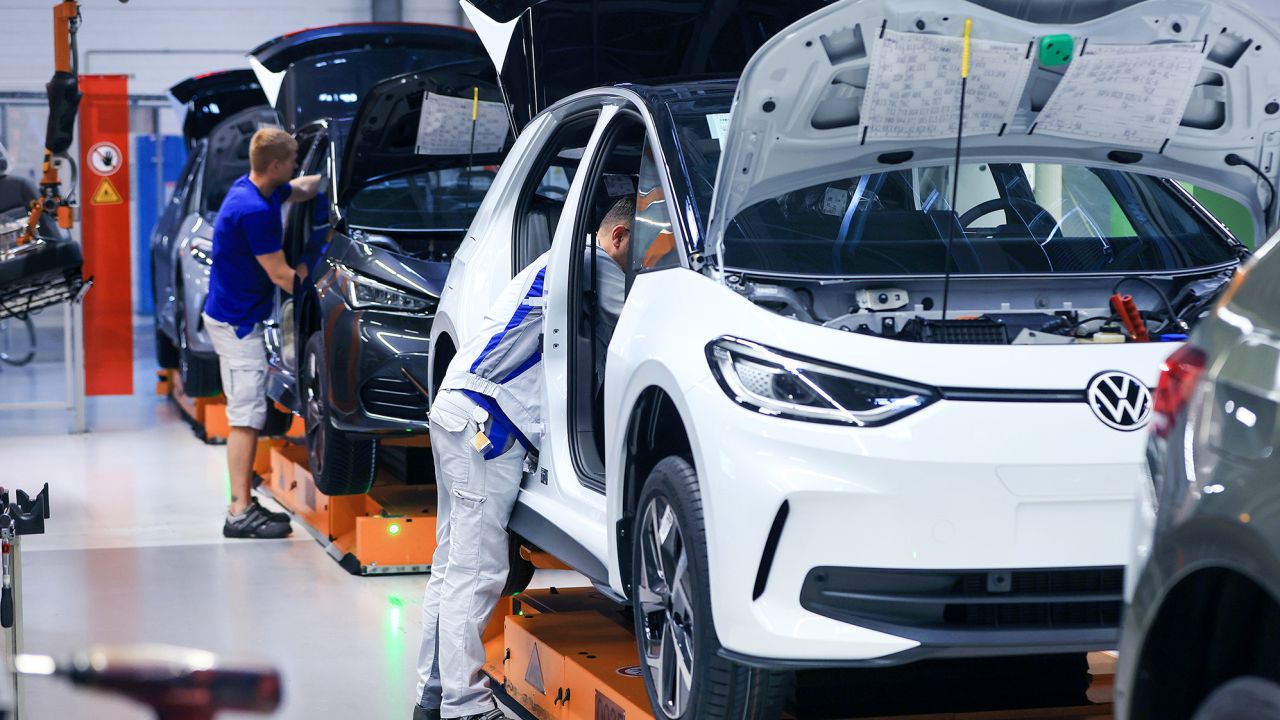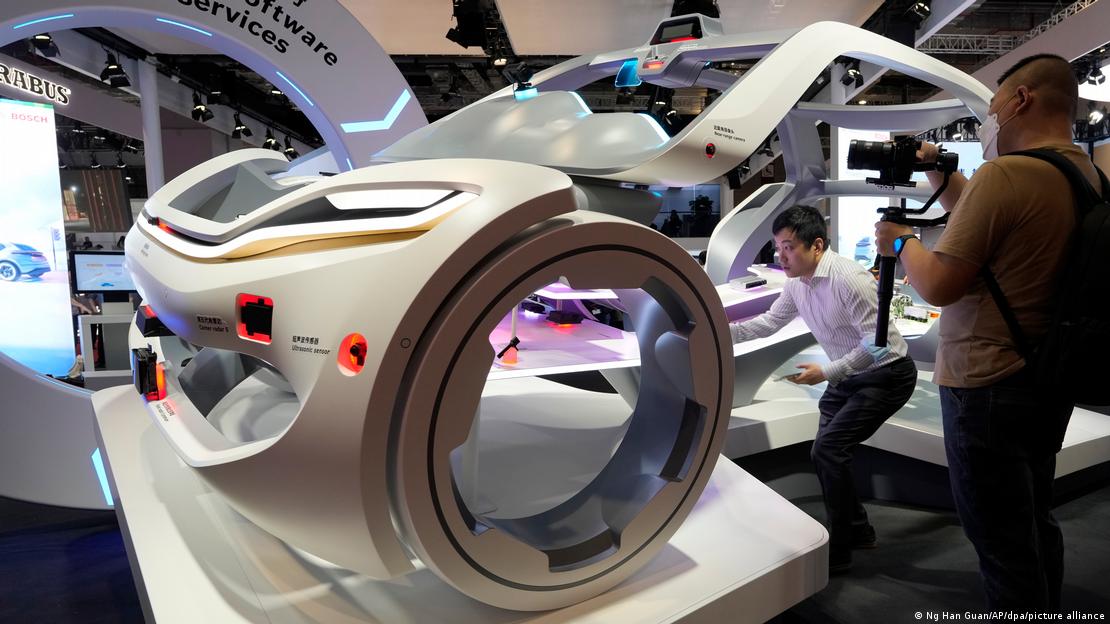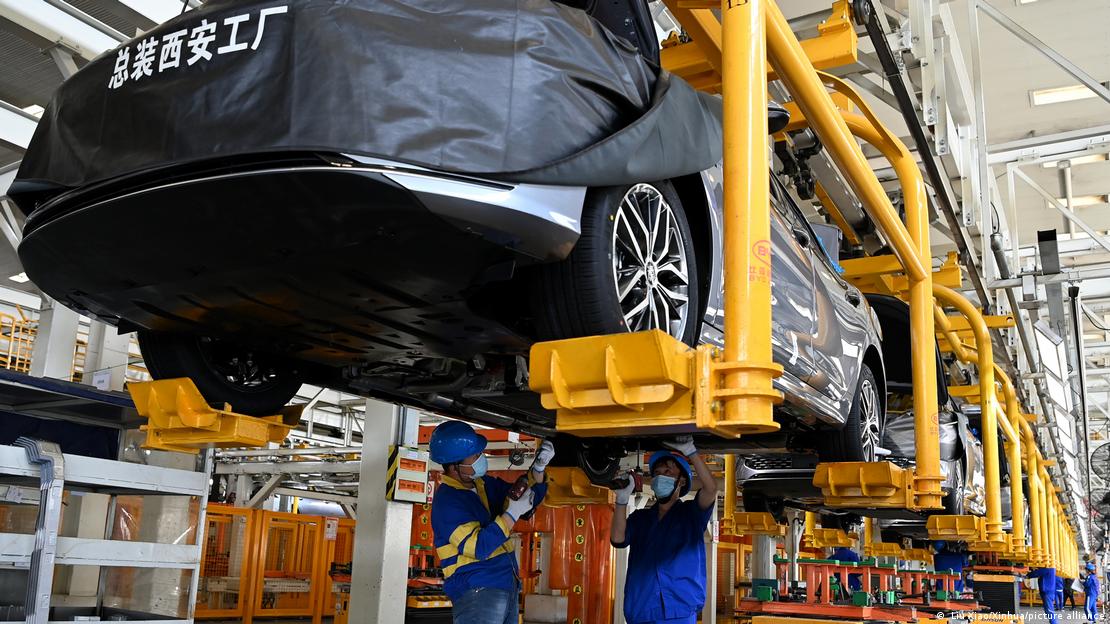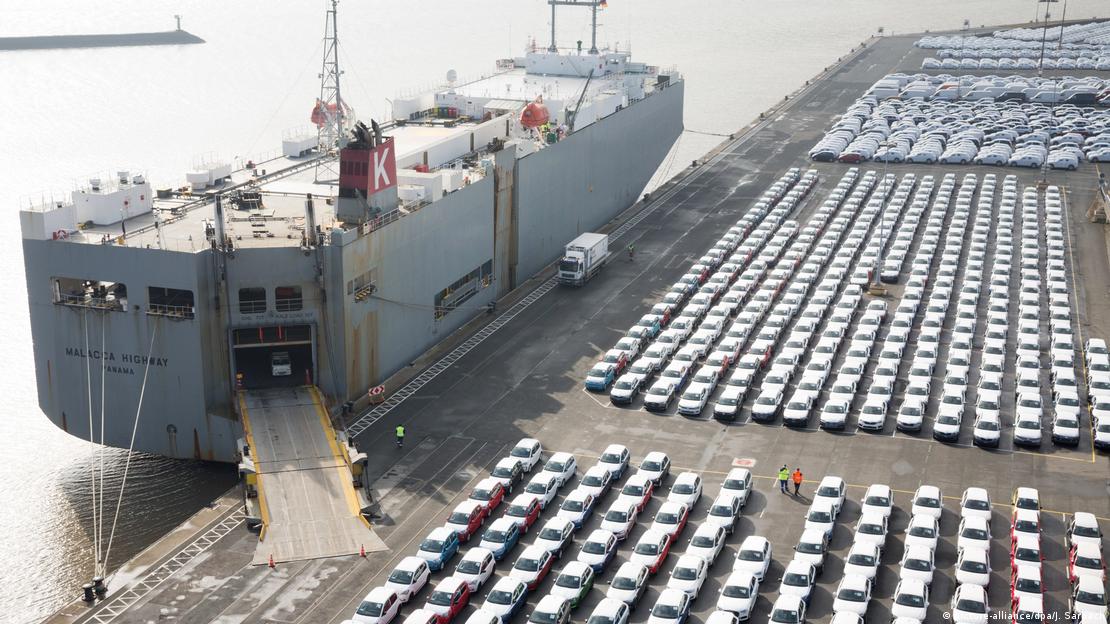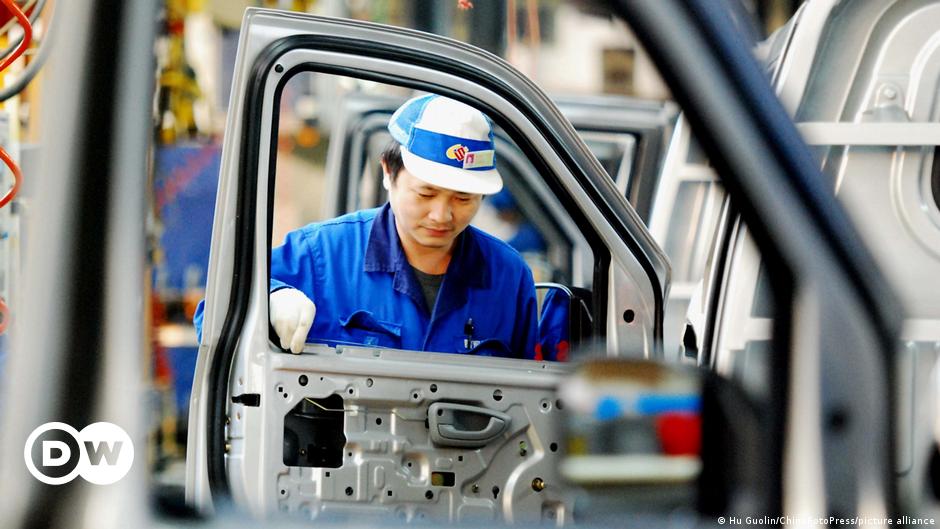Electric cars: Chinese carmakers are outpacing German giants
Klaus Ulrich
August 7 2023
High costs, decreasing demand, fiercer competition — the German automotive industry is coming under increasing pressure. And in the lucrative Chinese market, trouble is looming.
China's carmakers have every reason to smileImage: Hu Guolin/ChinaFotoPress/picture alliance
A sense of crisis is spreading in
the German economy as order books look thinner and consumer purchasing power dwindles amid rising
inflation.
The country's car manufacturers are also facing headwinds but theirs are magnified by rising structural problems in the once-powerful industry. The transition to
electric mobility and
autonomous driving is causing higher costs, while the necessary funds, still coming mostly from sales of combustion engine vehicles, are increasingly uncertain, not to mention politically undesirable.
Company figures for the first half of 2023 were satisfying for the likes of Volkswagen, Mercedes Benz, and BMW. All of them reported increased revenues and higher profits. But their outlooks for the resr of the year have disappointed the expectations of investors and shareholders. Inflation and rising interest rates are having a dampening effect, and new vehicles are in less demand.
"Even if we see an increase in production, this is not a sign of easing," warned Hildegard Müller, president of the German Association of the Automotive Industry, noting that sales were still more than a fifth below pre-pandemic levels in 2019.
Orders are declining in Germany, especially for battery-powered vehicles, with demand plunging to only about 60% of volumes from the previous year.
China's electric cars are no longer niche products at international auto showsImage: Ng Han Guan/AP/dpa/picture alliance
China's booming market
China, the world's largest and most important automotive market, meanwhile is rapidly growing its sector for electric cars, extending its lead not only in new registrations but also in production. Currently, every second electric vehicle worldwide is driven in China.
Chinese manufacturers are also making rapid technological progress catching up fast with industry bellwether, Tesla. Chinese car buyers, from both the middle class as well as higher income brackets, are increasingly favoring domestic brands. China's biggest carmaker BYD sold 29% more purely electric cars than Tesla in the first half of this year, according to the latest figures from the China Passenger Car Association.
"A disruption is taking place in this market," Ralf Brandstätter, a board member of VW China, told reporters recently, as he was forced to admit that VW was outsold by BYD in the first quarter in China. BYD delivered almost twenty times more electric vehicles to customers in China than VW.
In order to catch the wave of China's rising automotive power, VW has announced a partnership with automaker Xpeng in the fields of electromobility, software and autonomous driving. The tie-up with the Chinese startup has a price tag of $700 million for VW and aims to bring two electric VW models to the Chinese market by 2026.
Chinese automaker BYD — abbreviation for Build Your Dreams — is the new market leader, outselling VW in 2022Image: Liu Xiao/Xinhua/picture alliance
Mass market rot spreads into luxury segment
VW's high-end brands Porsche and Audi are also feeling mounting market pressure, as are Germany's two other luxury carmakers Mercedes-Benz and BMW.
Auto industry consulting firm Berylls claimed in
a recent market study that the world is seeing a "change of guard in China" in the premium segment. In the competition with traditional luxury manufacturers from Germany, the Chinese are "overtaking on the fast lane," the study said.
For decades German carmakers dominated the Chinese market by using a trickle down strategy: They introduced technology they had developed as optional extras for consumers and continued selling it at a premium price, until their competitors caught up.
"How out of step this product strategy is with the expectations of present-day Chinese car buyers, German OEMs [original equipment manufacturers] are currently getting a first taste of – with alarming implications for the future," Willy Wang, managing director of Berylls China, wrote.
"As China has moved to the forefront of consumer innovation, Chinese customers have neither the patience for technologies to trickle down the line nor the willingness to pay extra for the latest features," Wang wrote.
In the past, German luxury vehicles were considered ideal status symbols for the rising middle and upper classes in China. Domestic brands were reputed to be technologically backward and of little convincing quality.
Digital features are the trump card
But now Chinese produced vehicles are gaining popularity, especially due to digital features such as advanced assistance and infotainment systems. This isn't surprising given the traffic situation on China's crowded roads. In terms of things like comfort and quality, they are perceived by customers to be nearly the same or even slightly better than established carmakers, according to the study.
"The German auto industry will likely not play the same dominant role in China's car sector as it did in the past 20 years," says Gregor Sebastian, a China expert from the Merics Institute. For Chinese customers, technology is replacing traditional qualities as a reason to make a purchase, he told DW.
No German manufacturer in top 10
Small wonder then that 80% of all battery-electric vehicles in China now come from domestic producers. Among the top ten sellers only Tesla ranks. German brands no longer play any role in the list.
Regarding the overall Chinese auto market, including vehicles with internal combustion engines, Chinese brands are set to outsell foreign brands this year for the first time, with a market share of 51%. This share is projected to rise to 65% by 2030, say management consultants, AlixPartners, in their Global Automotive Outlook report for 2023.
Auto export flows might soon reverse as China's electric cars catch on with EuropeImage: picture-alliance/dpa/J. Sarbach
China is the export champion
Regarding Europe, the report predicts that car sales would remain about 15% below pre-pandemic levels. This was likely to be a long term prospect. European manufacturers would increasingly also be pressured by Chinese electric vehicle manufacturers in their home markets.
Unsurprisingly, in the first quarter of 2023, China replaced Japan as the world's automotive export champion. In 2020, it was still in sixth place.
The Asian country is advancing as a sales market, as an exporter, and as a production location.
"China is on its way to becoming an automotive superpower," Fabian Piontek, AlixPartners' automotive expert, told DW. European manufacturers are increasingly finding themselves defending market share at home. "The era of record profits for German automakers is coming to an end," he concluded.
High costs, lower demand, fiercer competition — the German automotive industry is coming under pressure. The lucrative Chinese market, in particular, is proving difficult as Chinese consumers choose national brands.

www.dw.com

